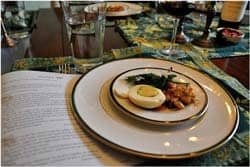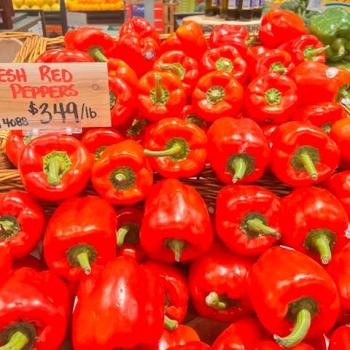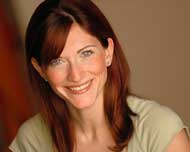By Talia Davis
 In Exodus 34:1-26, the Torah talks about the tablets that Moshe gets on Mt. Sinai. G-d starts talking to Moshe about our covenant as a people. A covenant is, essentially, a contract with G-d. G-d tells us what G-d wants and we learn what we will get in return for obedience.
In Exodus 34:1-26, the Torah talks about the tablets that Moshe gets on Mt. Sinai. G-d starts talking to Moshe about our covenant as a people. A covenant is, essentially, a contract with G-d. G-d tells us what G-d wants and we learn what we will get in return for obedience.
A couple of examples, you ask? Ah, well in verse 21, G-d says that we should work for six days and leave the seventh to rest. The last verse (34:26) says we should bring the best of our harvests to G-d and we should not cook a kid (stop freaking out... a kid is a baby goat) in its mother's milk.
Well, that is awfully specific, isn't it? This is where our no milk and meat in the same meal prohibition came from. But I have always been curious, why does it specifically talk about a baby goat being seethed or cooked in its own mother's milk? This is a question I took to my rabbi (my father) and he took it to his rabbi (a wonderful man named Reb Zalman Schachter-Shalomi). Reb Zalman told us that there was an ancient tradition wherein a Pagan high priest would literally seethe a kid (remember, baby goat) in its mother's milk then eat this meal in preparation for a ... shall we say ... rowdy ritual. Therefore, G-d is telling us that by making this covenant with G-d, we must make ourselves different than our neighbors and hold ourselves to a different standard.
The next part of our Shabbis reading comes from Numbers. Chapter 28, verse 19-25 refers to where G-d is telling us about the burnt offerings (remember that from Parshat Vayikrah and Parshat Tzav?). Again, talking about keeping the seventh day holy and the offerings we should give to G-d on Pesach.
So these sections are a little light, I know. But remember, we have other readings for Pesach.
On the first night, we were to have read Exodus 12:21-51 where it details the Pesach offering in Egypt, the tenth and final plague (death of the firstborn) and (from the text), "On this very day, G-d brought the Children of Israel out of the land of Mitzrayim (Egypt)."
On the second night of Pesach we read Leviticus 22:26-23:44, which talks about the timing on our calendar for our holidays, reminds us to count the Omer (more about that below), and our obligation to make a pilgrimage three times a year. Yup, Jews do that too... or we were supposed to... until our Holy Temple was destroyed. We were to visit Jerusalem and our Holy Temple on three annual pilgrimage festivals -- Pesach, Shavuot, and Sukkot. Well... there isn't a Temple so we don't have that requirement anymore but those are three holidays when El Al (official airline of Israel) sees a jump in business.
On the seventh day of Pesach, we read Exodus 13:17-15:26, where we sing The Song of the Sea. Our sages tell us that G-d was not happy with this. In the Sanhedrin it tells us that the angels wants to rejoice and sing songs of praise to G-d for drowning the Egyptians but G-d reacted with sadness and anger. "My handiwork, things that I have created, are drowning in the sea and your wish to sing before me?!" (Sanhedrin 39b) Even at the death of our enemy, we should not rejoice. So this part talks about the splitting of the Sea of Reeds (not the Red Sea, that is a different place) and how the Egyptians drowned in their pursuit of us.
 Lastly, on the eight day we read Deuteronomy 15:19-16:17. This is similar to what we read on the second day of Pesach. This section continues to talk about our cycle of holidays and festivals along with the offerings we brought to the Temple (when it stood) in Jerusalem.
Lastly, on the eight day we read Deuteronomy 15:19-16:17. This is similar to what we read on the second day of Pesach. This section continues to talk about our cycle of holidays and festivals along with the offerings we brought to the Temple (when it stood) in Jerusalem.
Wow! That's a lot of Torah, eh? Well, here's the deal with Pesach. It's an eight-day festival and rather than it being a Chag (or actual holiday) on all eight days (which would mean no writing or turning on lights or cooking), the middle days are called Chol Hamoed. This literally means the "weekdays" of the holiday. So the first two days and the last two days are treated like Shabbis and the middle days are like the weekdays. Still no bread but you can work or cook or watch tv.





